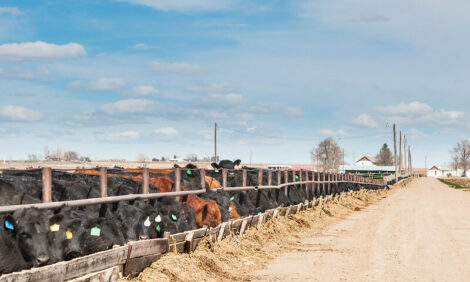



UK Agriculture Bill should restrict lower animal welfare imports, urges RSPCA
Supporting UK farmers to reach higher welfare standards is very welcome but not enough.Helping UK farmers to reach higher welfare standards must go hand in hand with restricting imports on farm animal products produced to lower welfare standards, urges the RSPCA.
The animal charity was giving evidence at the Agriculture Bill Committee on 12 February against the prospect of trade deals allowing food imports which would be illegal to produce in the UK
David Bowles, assistant director of public affairs at the RSPCA, said afterwards: “While the RSPCA is delighted the Government will be supporting farmers to reach higher welfare standards, it’s essential that restrictions on lower welfare imports are written into the Bills at the same time.
“Without that control, we’ll be letting in cheaper imports produced to lower welfare standards than are allowed in the UK - and that would threaten British farmers’ livelihoods as well as putting imported low welfare animal products on supermarket shelves.
“For example, 55 percent of the pork and bacon we eat is imported. The USA still uses sow stalls (illegal in the UK), so if we import pig products from there, we’ll be opening up the door to cheaper imports which are produced to far lower welfare standards. That’s not what the consumer wants.”
The RSPCA hopes the farm support system will provide farmers through one-off capital grants to ensure they can deliver higher welfare standards.
Bowles continued: “As an example, providing rubber matting would reduce lameness in cattle and potentially trials for this could start within a year. It’s a win, win, bringing benefits to animals and the environment”.
“This is a very exciting time for farmers. Not only are there particular opportunities to establish base welfare standards in markets for sheep, chicken, beef and dairy, but also in other areas. For example 0 percent of ducks have access to full body water, it’s a tragedy for ducks in the UK.
”As we find ourselves at a crossroads of animal welfare, it is so important we get this right to safeguard our farmers and to ensure the public can continue to access food produced to high welfare standards.”
To safeguard animal welfare standards take action today.


